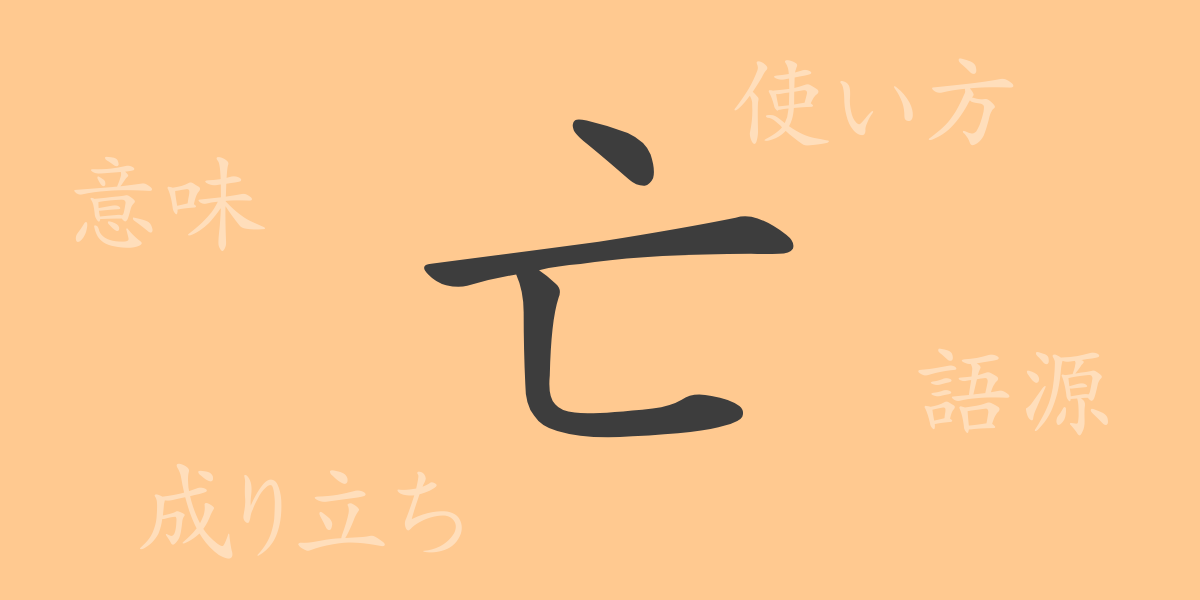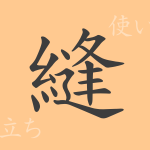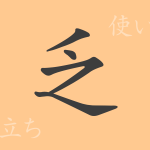The beauty of the Japanese language is reflected in its characters. Each character carries deep meanings, beautiful shapes, and rich expressions that continue to amaze. Today, we spotlight one of Japan’s 常用漢字(Jouyou Kanji), “亡” (bou/mou), exploring its origins, meanings, usage, and the idioms and phrases it forms. Join us as we delve into the charm of this kanji.
The Origin of 亡 (bou/mou)
The kanji “亡” (bou/mou) is derived from ancient pictographs, originally representing the shape of a fleeing person. This evolved into meanings like “to lose” and “to disappear.” Today, it is commonly used to signify “to die” or “to perish.” The character has also undergone changes in its form over time, reflecting the evolution of the language.
Meanings and Usage of 亡 (bou/mou)
The kanji “亡” (bou/mou) means “to die,” “to be lost,” or “to not exist.” It is primarily used in contexts indicating disappearance or non-existence and serves as a prefix with a negative connotation. For instance, “亡くなる” (nakunaru) means “to die,” and “亡失” (boushitsu) means “to be lost.”
Readings, Stroke Count, and Radical of 亡 (bou/mou)
“亡” (bou/mou) is one of the fundamental kanji in Japanese, known for its simplicity in reading and structure.
- Readings: On’yomi (音読み): “ボウ” (bou), “モウ” (mou); Kun’yomi (訓読み): “な.い” (na.i), “な.き-” (na.ki-), “ほろ.びる” (horo.biru), “ほろ.ぶ” (horo.bu), “うせ.る” (use.ru)
- Stroke Count: 3 strokes
- Radical: 亠 (tō, lid radical)
Idioms, Phrases, and Proverbs Using 亡 (bou/mou)
There are numerous idioms, phrases, and proverbs in Japanese that include “亡” (bou/mou). Here are a few examples:
- “亡骸” (nakigara): The body of a deceased person; a corpse.
- “亡霊” (boure): The spirit of a deceased person; also, lingering memories of past events or failures.
- “亡国” (boukoku): The downfall of a nation; a critical situation threatening national ruin.
- “亡き者” (nakimono): A person who has already died.
- “亡者のよう” (mouja no you): An expression describing someone extremely tired or under severe stress.
Summary of 亡 (bou/mou)
The kanji “亡” (bou/mou) is a simple yet powerful character. It plays a significant role in many contexts due to its meaning of disappearance or death. It is also widely used in idioms and phrases, enriching Japanese expressions. By understanding the background and usage of seemingly simple kanji, one can gain a deeper appreciation and comprehension of the language.

























